Democracy and Education by John Dewey:
Democracy is that way of life in which every member of the society has a say not only in the Government but also in the administration and working of the society. He believes in providing equal opportunity to all and “means freeing intelligence for independent effectiveness, the emancipation of the mind as an individual organism to do its own work”. Freedom is the cornerstone of democracy but freedom of action must be preceded by freedom of thought. If the mind is not free, hands cannot act freely.
Dewey thought that education must be the mirror of the democratic way of life. Even in the school administration should be based upon democratic principles. The teacher should have a say in the administration of the school and should not be only the agent to carry out the orders of the Manager, Headmaster or Principal and other authorities of the institution. The strict supervision that was being exercised by the teachers in those times over the students was not very much appreciated by Dewey. He thought that it would lead to retarding of the proper growth of the personality of the child and would restrict his intelligence and spirit. He also did not believe that the teachers are incompetent and inefficient and should not be vested with powers. According to Dewey, such a view was not only uncharitable but also undemocratic. He said, “What does democracy mean to save that the individual is to have a share in determining the conditions and aims of his own work”.
Like a teacher, Dewey had his own views of democracy in regard to children also. He did not believe that the child’s mind should act according to pressures and dictates from outside; maybe from the teacher or anybody. He thought that a democratic system of education should aim at the development of the personality of the child which is moral and self-directing. Such a system will provide an outlet for the growing intelligence and impulses of the child and will also encourage his emotional and intellectual freedom. It will provide him with first-hand experiences and give him a chance to take an active and vital part in the process of education. He shall not be required to be a passive partner and be docile and obedient, but he shall have an opportunity to act freely and develop the qualities of initiative, independence and resourcefulness which are the requisites of an intelligent citizen.
Dewey has laid down the methods also that should be employed to give the child opportunity for all these things. He has suggested the change in the curriculum also and laid stress on the subjects that have a vocational bias. Such subjects will lead to individual efficiency which is essential for good citizenship in a democracy.
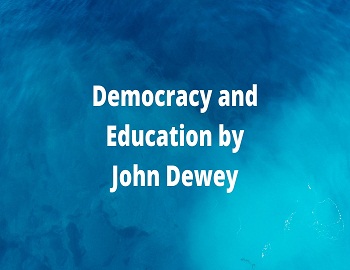
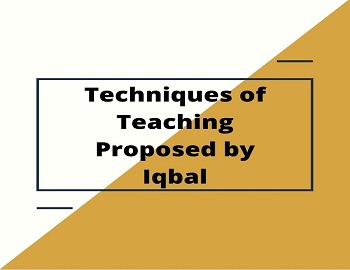
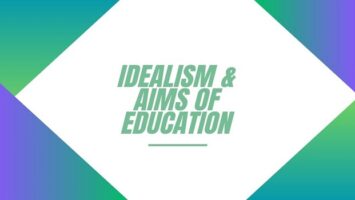
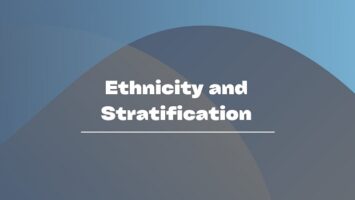

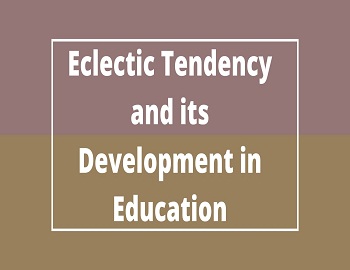



Comments (No)